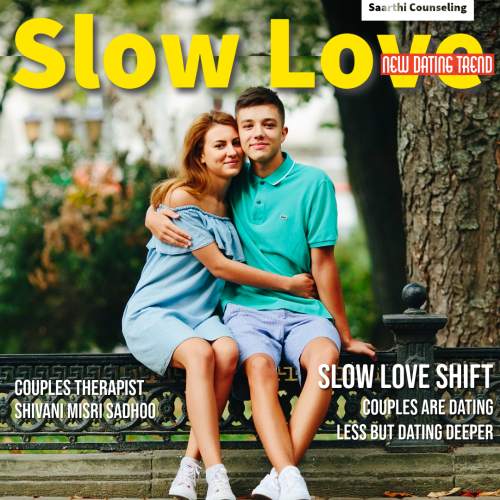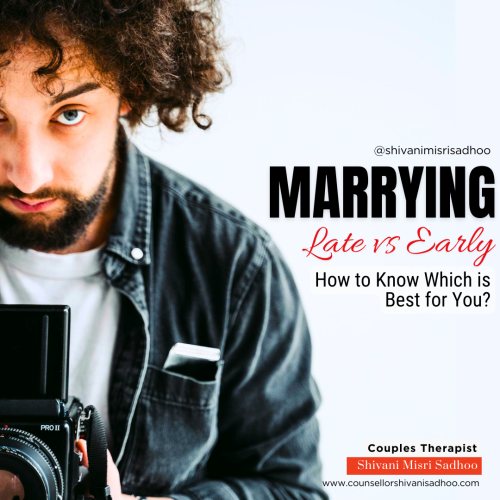Insecurity is one of the most common challenges that can erode the foundation of a relationship. Whether it stems from past experiences, low self-esteem, or fear of abandonment, unchecked insecurity can lead to jealousy, resentment, and conflict. Learning to recognize its signs and taking steps to address it is essential for building a trusting and fulfilling partnership. Here’s what relationship experts recommend for identifying and overcoming relationship insecurity, explains Shivani Misri Sadhoo, a leading relationship expert and marriage counsellor in Delhi and India.
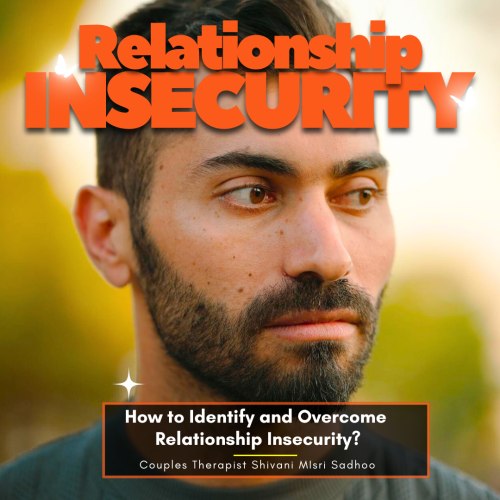
How to Identify Relationship Insecurity?
Recognizing insecurity is the first step toward change. Some of the, some of the most frequent signs include:
- Constant Worry About Rejection: You often fear your partner will leave you, even without any clear reason.
- Need for Reassurance: You repeatedly ask for validation of your partner’s love or commitment.
- Jealousy and Suspicion: You feel threatened by your partner’s interactions with others, including friends or colleagues.
- Overanalyzing Communication: You interpret neutral messages or delayed replies as signs of disinterest.
- Avoiding Vulnerability: You struggle to share your true feelings, fearing judgment or rejection.
These patterns can create distance and tension in the relationship if not addressed.
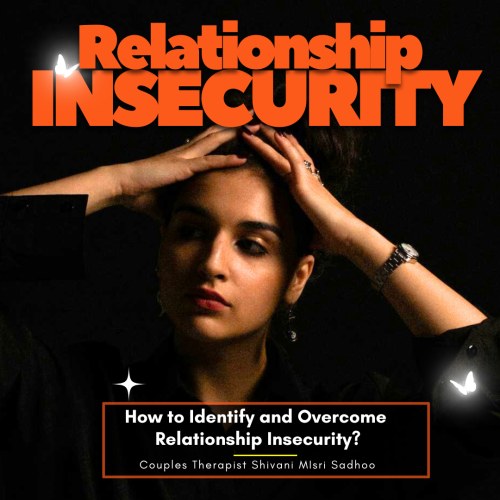
How to Overcome Relationship Insecurity?
Shivani Sadhoo suggests that overcoming insecurity requires both self-awareness and practical strategies. Here are effective approaches to help you build confidence and trust:
Reflect on the Root Cause
Often, insecurity has deeper origins, such as childhood experiences, past betrayals, or unresolved trauma. Reflect on when you first started feeling insecure and consider working with a counselor or therapist to explore these patterns. Understanding why you feel the way you do can help you respond more rationally in the present.
Communicate Honestly
Open, non-defensive communication is essential. Instead of accusing your partner or bottling up feelings, express your emotions calmly. Use “I” statements, such as “I feel anxious when I don’t hear back from you,” rather than “You never care about me.” Clear dialogue helps your partner understand and support you.
Build Self-Confidence
Insecurity often thrives when you don’t feel good about yourself. Strengthening self-esteem can reduce the need for external validation. Pursue hobbies, set personal goals, and acknowledge your strengths. When you feel secure in who you are, you rely less on constant reassurance.
Set Healthy Boundaries
Healthy relationships involve trust balanced with independence. Give each other space to maintain friendships and personal interests. Avoid checking your partner’s phone or questioning every detail of their day—such behaviors can damage trust and reinforce insecurity.
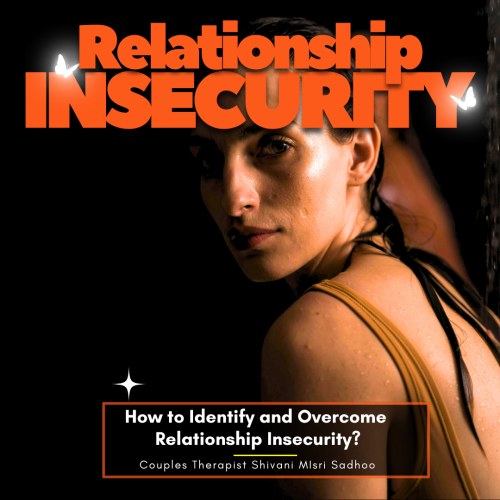
Challenge Negative Thoughts
It is recommended to practice cognitive reframing. When you notice anxious thoughts (“They don’t love me anymore”), challenge them by asking for evidence and considering alternative explanations (“They might be busy at work”). This helps break the cycle of catastrophic thinking.
Practice Mindfulness
Mindfulness techniques such as meditation and deep breathing can reduce anxiety and help you stay grounded. By learning to observe your thoughts without judgment, you gain more control over emotional reactions.
Seek Professional Support
If insecurity feels overwhelming or leads to repeated conflicts, working with a couples counselor can be invaluable. A professional can guide you in developing healthier patterns of communication and rebuilding trust.
Relationship insecurity is common, but it doesn’t have to control your life. By understanding its roots and adopting constructive habits, you can foster self-assurance and create a stronger, more resilient bond with your partner.

Shivani Misri Sadhoo is an internationally recommended relationship counsellor by the world’s biggest and most trusted study and research-based foundation for couples therapy – Gottman Institute. She is trained in specialised key relationship counselling Skills from AIIMS, VIMHANS and various other reputed institutions. Counsellor Shivani Misri Sadhoo is also certified in emotionally focused therapy, cognitive behavioural therapy, and dialectical behaviour therapy.
Counselor Shivani Misri Sadhoo is also a Certified Neuro Linguistic Practitioner with specialized training and experience in the field of affairs/betrayals, trust issues, difficulty communicating, conflicting values, bereavement, grief and loss (affairs, separation, divorce, childhood) and emotional health issue (anxiety, social anxiety, fear, depression, low mood).
Currently, Shivani Misri Sadhoo is one of the top counselors with the HIGHEST Success Rate with over 17,000 happy couples and individuals (based in India and abroad), who has benefited from her therapy. Psychologist and Counselor Shivani Misri Sadhoo not only practices independently from her clinic in Greater Kailash, Delhi, India, but also is listed on the panel of eminent hospitals like IBS Hospital Panel – Institute of Brain and Spine, Express Clinic, Fortis (formerly) based in Delhi.
Call Counselor: +91-8860875040
Email: saarthiforlife@gmail.com

